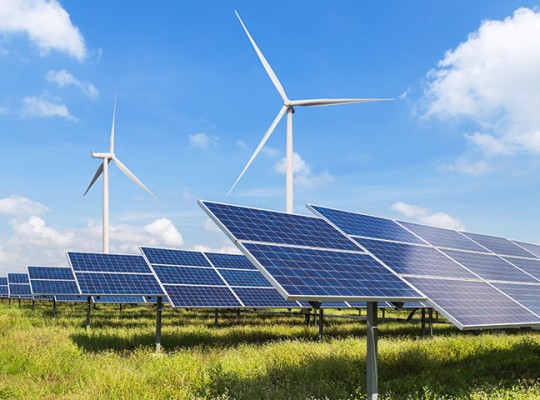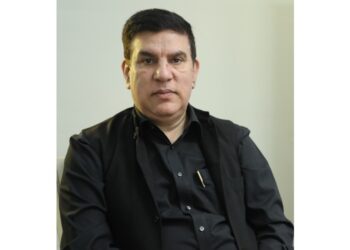Are Innovations in Clean Energy and Global Investments Promoting Sustainable Advancements?
Nowadays, the clean energy industry is experiencing a significant surge, driven by advancements in technology and global efforts to combat climate change. Traditional energy sources are facing increased attention, resulting in renewable alternatives such as solar, wind, and hydro gaining a significant market share. Advancements in battery storage and smart grid technology are transforming how power is produced and utilized. With major investments from governments and businesses in sustainable energy solutions, the clean energy industry is expected to reshape the energy landscape, providing a greener and more robust future. This transformation addresses environmental issues, opens new economic opportunities, and enhances energy security.
According to a recent report published by Allied Market Research the global clean energy industry is anticipated to register a notable CAGR of 9.1% from 2023 to 2032.
Innovative clean energy advances through metal-organic frameworks
Metal-organic frameworks (MOFs) are materials with high porosity and a vast surface area, making them suitable for various applications, including clean energy. In clean energy, MOFs have shown remarkable potential in gas storage, separation, and catalysis.
An innovative use of MOFs is in carbon capture and storage (CCS), where they can selectively adsorb CO2 from industrial flue gases, helping to reduce greenhouse gas emissions. For example, scientists have developed MOFs with customized pore sizes and chemical properties that improve the absorption of CO2 and selectivity compared to other gases. This makes them great options for large-scale carbon capture facilities.
Moreover, MOFs are also being explored for hydrogen storage due to their ability to capture and release hydrogen molecules in specific environments. This capability is important for the development of hydrogen fuel cells in future energy systems. These advancements show how MOFs are expanding the possibilities of clean energy technologies, offering sustainable solutions to global energy challenges.
Growing investment in wind energy to establish alternative energy sources
There has been a significant increase in global investment in wind energy as countries seek sustainable alternatives to fossil fuels. Wind power provides important environmental benefits by reducing greenhouse gas emissions and dependence on finite resources. For instance, Denmark has been a leader in wind energy development, with wind turbines producing more than 40% of the country’s electricity. This transition helps to reduce environmental impact, improve energy security, and create jobs in the renewable energy sector.
Furthermore, the growing investment in wind energy showcases a broader commitment to transitioning toward cleaner energy sources. Governments and private investors are increasingly attracted to the scalability and technological advancements in wind energy, which have become more cost-effective over the years. This trend highlights a global shift toward a greener energy future, aiming to reduce reliance on non-renewable resources and address concerns about climate change. With ongoing investments in wind energy initiatives worldwide, this shift indicates a future where renewable sources are vital in meeting energy demand sustainably and contributing to the clean energy sector’s growth.
Alternus Clean Energy expands U.S. operations with the acquisition of 80 MWp portfolio
On May 3, 2024, Alternus Clean Energy, Inc., a prominent transatlantic clean energy IPP, announced agreements with a U.S.-based fund to purchase an 80 MWp operating portfolio across the United States. This portfolio includes 33 projects in eight states, with long-term contracts averaging over 12 years and involving 16 partners, including Duke Energy. The acquisition, estimated to be worth around $60 million, including existing debt, is anticipated to be completed by the end of 2024.
Vincent Browne, the CEO, expressed enthusiasm about entering the U.S. market, emphasizing the opportunity to expand operations and improve financial performance. The acquisition will increase the company’s operational projects to more than 120 MWp. In alignment with Alternus’ strategic change, the company sold non-essential projects in Poland and the Netherlands at the end of 2023. Browne restated the goal of reaching 3 GW of operating projects in the next five years, highlighting the company’s focus on growth in the clean energy sector.
Canadian Solar’s strategic investment extends clean energy manufacturing in Yangzhou
On January 30, 2022, Canadian Solar Inc. announced that the municipal government of Yangzhou City in Jiangsu Province, China, has signed a long-term investment agreement with its subsidiary, CSI Solar Co., Ltd. Under the agreement, CSI Solar intends to expand its manufacturing capacity for high-efficiency wafers, cells, modules, and battery systems in Yangzhou’s clean energy manufacturing industrial area.
To conclude, the industry is rapidly evolving with innovations such as metal-organic frameworks and significant investments in wind and solar energy production. These developments highlight a major shift toward sustainable energy solutions, offering a greener future driven by technological developments and strategic expansions in the renewable energy industry worldwide.













